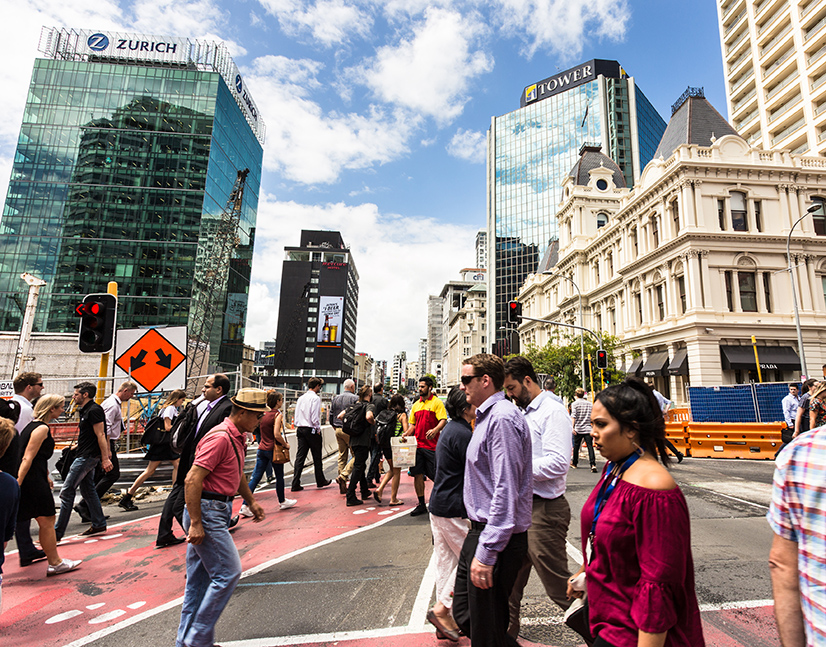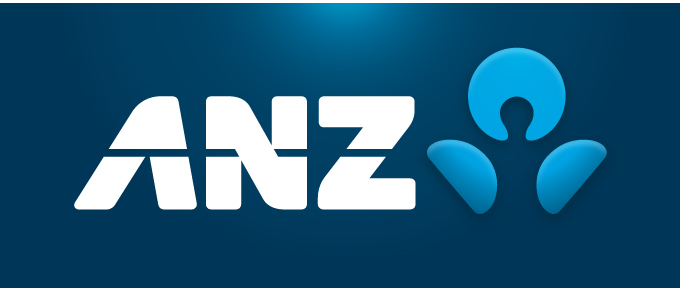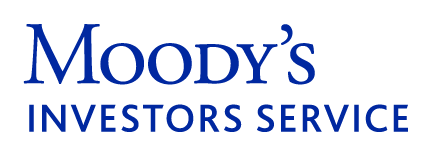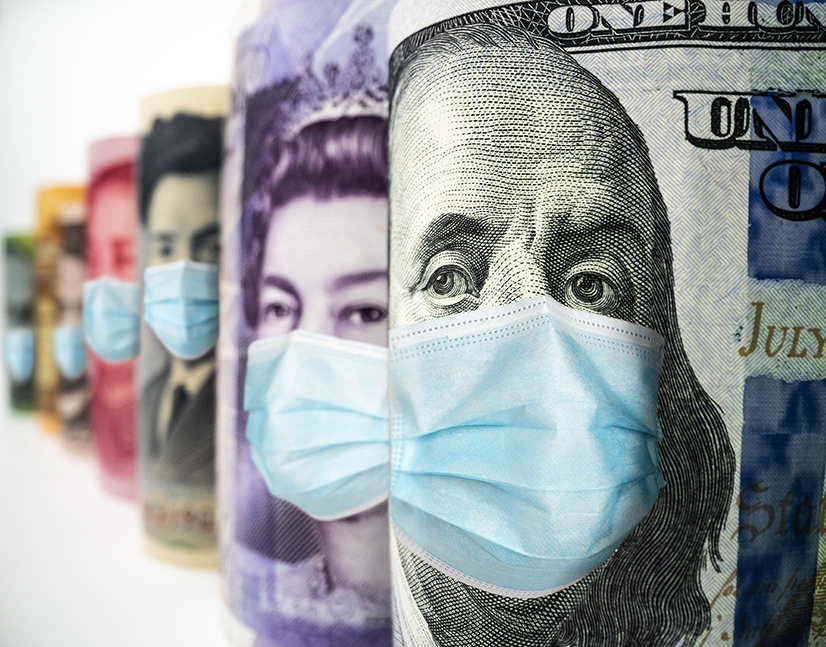
Down time
There is no doubt we are in a uniquely stressful period, professionally and personally. Our best hope is community spirit. In a rapidly changing but always frightening environment, talking to people in the market about the challenges we face has been heartening.
Laurence Davison Head of Content and Editor KANGANEWS
Thinking back over the time since mid-February, I’m struck by how many things that seemed like outliers came to pass seemingly within hours – and then got left in the wake of further spiralling events.
To give just one example, at the end of February, KangaNews still had some hope of running conferences in Sydney in late March, with perhaps 700 delegates coming through the doors on the busiest day. By 29 March – the same week the conferences had been set to run – prime minister Scott Morrison was appearing live to tell Australians not to gather in groups of more than two.
By that stage, participants in the Australian and New Zealand debt capital markets were largely watching developments from home offices in spare bedrooms, studies and kitchens. Some had been in place for a while.
I count myself among the lucky ones, as I have spent most of my time working from home for more than half a decade. I have already completed both the physical office set up and, I hope, the mental adjustment, while others had to cordon themselves off in a hurry. I understand obtaining a desk in Sydney in March was almost as difficult as finding a roll of toilet paper.
So here we are: adapting to economic and living circumstances that have not been seen in the developed world since the Second World War. The physical threat may be less – though it is very real – but the intrusion of the state into the economy and our personal lives must be similar to that of a nation in wartime.
"We are looking forward to rolling out new options for connecting the market virtually, with the aim of continuing to be what we have always aspired to be – a town hall for our industry – even while physical meeting is impossible."
Our role
Early in what I’ll call the acceleration period – the time of rapid escalation of measures to contain the virus – we started talking about how KangaNews could adapt to this unique and challenging environment.
In part, this meant business adaptation. It is fairly clear, for instance, that we won’t be able to get those 700 people into a room together for some time. We have postponed various events and are looking forward to rolling out new options for connecting the market virtually during the period when we cannot do so in person. We aim to be what we have always aspired to be – a town hall for our industry – even while physical meeting is impossible.
We have also tried to respond with our editorial coverage. KangaNews has traditionally aimed for accuracy and depth over pace. We are happy to take a couple of days to publish transaction coverage, for instance, if it is necessary to bring in the right range of perspectives and collate all the relevant information.
COVID-19 changed this. A small editorial team reinvented itself as a provider of rolling news, more or less overnight. I think our business’s adaptivity was best summed up on 23-24 March. In the absence of our Debt Capital Markets Summit, we set up a live dial-in for the chief economists panel that would have been part of the conference and reached capacity on the line almost immediately. Then we hosted the discussion, transcribed and edited it, secured sign off from all the participants and had it published online within 24 hours.
Universal challenges
At the same time, we discussed what we could do to broaden our role as a town hall during the lockdown. The first thing we settled on was The COVID Diaries – a new avenue for KangaNews coverage. The idea is to allow market participants to speak anonymously about their working and personal lives under lockdown.
We were conscious that our coverage in more normal times focuses exclusively on market activity. We had never considered it part of our job to share perspectives on the pressures and worries that colleagues, clients and peers must share. It just didn’t seem to be what people come to KangaNews for.
We are in a different world now. The idea of The COVID Diaries is to let market participants know their struggles are not unique, and to share – outside our paywall – insights into how others are coping and what is keeping them awake at night.
Some of my favourite comments from the diaries so far are about the day-to-day challenges of transitioning to home working. The story about not being able to find a desk, for instance, or the pervasive tales of trying to juggle a full-time job with full-time childcare and home schooling.
The consequences of having children constantly adjacent to the work environment is perhaps the most common theme of the diaries. It also gives a heartening reminder of the value of community spirit and the understanding that we are facing universal challenges. For every story of a banker trying to keep small children off videoconference calls there is another of how willing colleagues have been to accommodate the unpredictable presence of offspring.
It strikes me that necessity is going to change attitudes towards flexible working in the long term. A few months ago, ‘working from home’ was still greeted with at least an undertone of suspicion, the idea being that as soon as a colleague or employee was out of sight they would prioritise the school run or a nice afternoon nap.
Now we are all in the same boat, perspectives seem to have changed overnight. Suddenly, there is a common understanding that everyone is doing their best in difficult circumstances and if that means a stray child popping up on a video call every so often, well, it’s nice to see signs of humanity.
I have to say it is also notable, as a journalist, to find how willing people generally are to talk on the phone now. It is not that they don’t have plenty to do – though I suspect we will be in for periods of eerie calm alongside those of panic-stricken frenzy – but there seems to be a sense that it is important to make time to talk, about work but also about the world in which we are living.
"There is a common understanding that everyone is doing their best in difficult circumstances and if that means a stray child popping up on a video call every so often, well, it’s nice to see signs of humanity."
Exit strategy
Now we are past the immediate adaptation phase, it is natural for minds to turn to what the world might look like ‘when this is all over’. I’m not going to speculate much about the economic impact. I’m not qualified to do so, and the variables are so wide-ranging that guessing about the shape of a future recovery is largely meaningless.
I am finding it increasingly hard to put much faith in the idea of a VE Day equivalent, where the war is suddenly over and we can all resume our lives as they were before (after, presumably, one hell of a party). The best hope is probably for a gradual return to something like normality while we wait for a COVID-19 vaccine. International travel and large gatherings might not become routine again until one is readily available.
Some of the more worrying coverage suggests that any wide-scale lifting of social restrictions before a vaccine is available will almost inevitably mean a second wave of infection and the return of social distancing. I’m not sure I buy into the idea that prolonged distancing measures will result in social unrest, but I can certainly imagine it becoming harder and harder to enforce restrictions the longer they are in place. Which comes to much the same thing, I suppose.
The macro story of the crisis really boils down to how governments and societies weigh off the respective impact of massive self-imposed limits on freedom – and the consequent economic damage – against the terrifying prospect of health systems being overwhelmed by a virus against which we have no ready defence.
So far, most people seem more or less willing to sacrifice their near-term freedom and financial status to mitigate the public-health catastrophe. My concern is that this is unsustainable, especially as the positive benefits of social distancing potentially breed complacency about the virus in the population at large.
Clear and honest public messaging is going to be critical to ensuring people continue to buy in to painful demands being made of them. In this context, the approach taken by Donald Trump – an immediate prioritisation of business over public health, and a predictable focus on electoral outcomes and personal enrichment – is particularly frightening. Increasingly, I wonder if, in the long term, the US system carries the tools it needs to rejuvenate and repair its societal structure.
We are already seeing speculation about how society might change. We are all going to be more understanding, some say. Populism and nationalism will rise unchecked, others argue. All I feel I can usefully contribute is that I doubt the character of humans will fundamentally change for long. We are social people, and months of being denied that contact is not going to stop us craving it.
I also doubt many people will become fundamentally better or worse. Even in the early days of social distancing, there is a clear split between those who are trying to help their communities by making personal sacrifices and those who think the rules should not have to apply to them. Some leaders put people ahead of their own ambitions, others see everything through the lens of electoral prospects or how deeply they can get their own snouts in the trough.
In our corner of the world, it would be nice to think at least some of the sense of community that has emerged could be retained. Where we are now shows what we are capable of: we are all thankful to have jobs and have presumably written off much hope of near-term financial or hierarchical improvement, yet in the main we have all managed to focus on our numerous advantages and spare thoughts for the many who are less fortunate. If this feeling can linger, maybe the new world will be a happier one.












